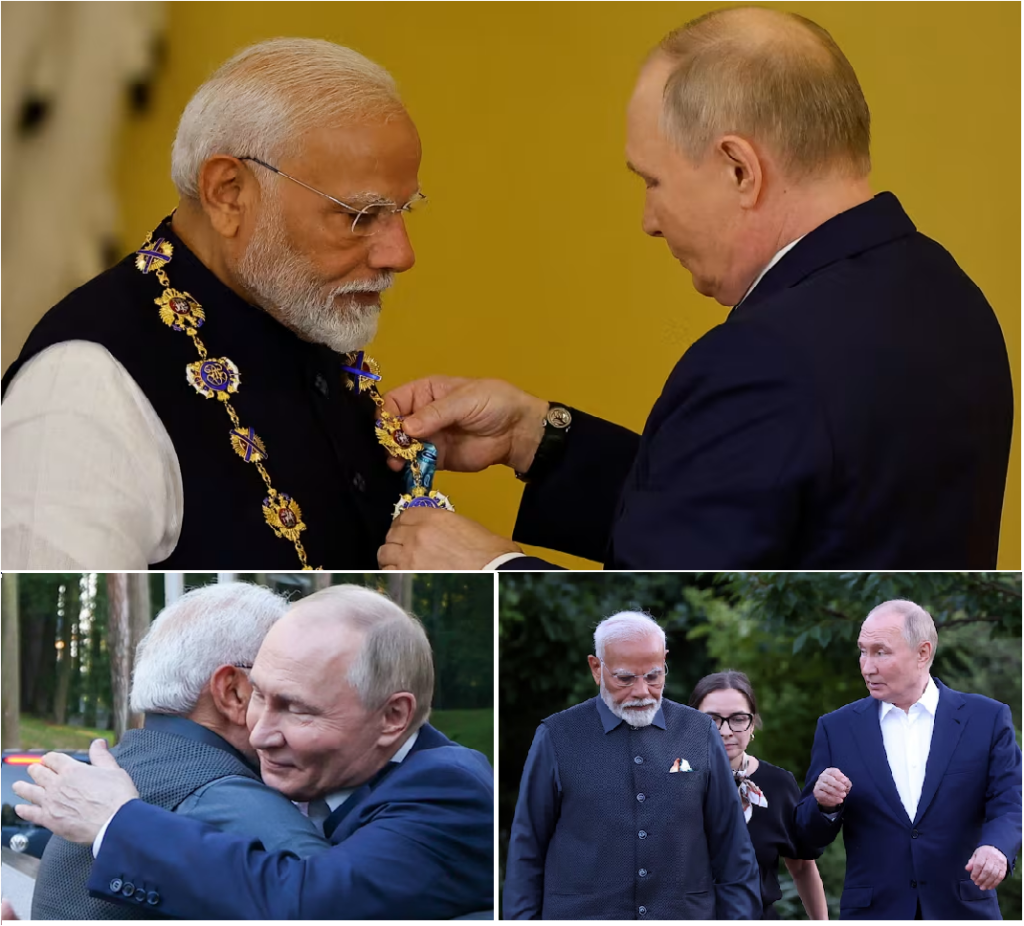
- Prime Minister Modi’s visit underscores the importance of these bilateral ties and demonstrates that despite the pressures, India has maintained a firm stance on promoting dialogue.
- The visit reiterated that India’s approach is driven by its independent foreign policy, focusing on mutual interests and non-alignment.
- Modi’s visit to Russia is an indirect response to the US administration, which has been interfering in India’s matters, such as the Khalistan issue and so-called religious freedom.
- Modi’s first official visit to Russia in his third tenure as PM, one of India’s biggest strategic partners, counters the perception that Modi 3.0 was fragile for not having a majority on its own.
Soon after being re-elected as Prime Minister of India for the third consecutive time, Narendra Modi’s first foreign visit was to Russia. India and Russia already share a special privileged partnership, with a relationship that spans decades. Prime Minister Modi’s visit underscores the importance of these bilateral ties, especially when Western countries are urging India to align more closely with their stance, particularly concerning Russia’s actions in Ukraine. Despite the pressures, India has maintained a firm stance on promoting dialogue.
Global attention on Modi’s visit to Russia
Prime Minister Modi’s visit to Russia has elicited strong international responses. The visit, part of a bilateral dialogue, drew significant attention, with Modi acknowledging that it raised international eyebrows. Ukraine expressed its displeasure, with President Zelensky indirectly criticizing the visit by stating it undermined peace negotiations and was wrong for the head of the world’s largest democracy to embrace a “criminal”—referring to President Putin.
Similarly, the USA voiced its concerns over the closeness between India and Russia. The United States emphasized its ongoing concerns regarding the visit but also noted that it did not alter the strategic relationship between India and the USA. While there hasn’t been an official statement from China regarding Prime Minister Modi’s visit to Russia, the visit does carry implications for China. The warm welcome Modi received, with the Deputy Prime Minister of Russia greeting him at the airport, was significant. This marked only the second time such a welcome was extended, the first being to the Chinese President during his visit to Russia.
Progress during Modi’s visit to Russia
Following this, an informal meeting at the official residence of the Russian leader, which included personal dialogue between Modi and Putin, further highlighted the importance Russia places on its relationship with India. This indicates that Russia views India as a crucial player and suggests that Russia-India relations will be considered independently of Russia-China relations. This situation underscores the strategic importance of India to Russia.
Modi’s visit was part of a bilateral meeting, an annual event since 2000, which had been disrupted due to the conflict in Ukraine. This visit highlights the significance of the relationship, especially given India’s recent status as one of the largest importers of Russian crude oil. India relies heavily on affordable Russian energy, which has strengthened trade relations. Last year, trade between the two nations grew by 60%, reaching over $50 billion, with an ambitious goal to increase this to $100 billion annually. Their partnership extends beyond trade, encompassing technology, people-to-people exchanges, and cultural ties.
One significant challenge in the India-Russia relationship has been connectivity. There is no direct land route between the two countries, hindering trade. However, the International North-South Transport Corridor (INSTC) aims to address this by connecting India to Russia via Central Asia, enhancing logistical ties. This corridor, including the Chennai-Vladivostok route, is crucial for both nations.
Russia, amid Western sanctions, increasingly depends on its trade with India. With many Western countries halting energy imports from Russia, India, along with China, has become a key purchaser of Russian energy, helping to stabilize Russia’s economy. This economic interdependence highlights the importance of their relationship.
Politically, Russia seeks to strengthen its partnerships in Asia, with India being a key ally. India’s participation in Russia-led multilateral forums is crucial for addressing global challenges and promoting a multipolar world order. Both countries also collaborate in international organizations like the United Nations and BRICS.
Despite their robust relationship, certain challenges remain. Russia’s close ties with China, which has a “no limits” friendship with Russia, could complicate its neutrality in India-China relations. However, India views its relationship with Russia as distinct from the Russia-China dynamic. The personal rapport between Modi and Russian leaders further strengthens bilateral ties.
Untold Messages of the Visit
Hence, the India-Russia relationship is vital for both nations. India’s approach is driven by its independent foreign policy, focusing on mutual interests and non-alignment. Modi’s visit to Russia reaffirms this enduring partnership, crucial for economic, political, and strategic reasons. Modi’s visit to Russia is indicative of how India aims to send an indirect signal to the United States and European countries.
The visit demonstrates that the Indian government is not weak. Despite not achieving a majority and forming a coalition government for the first time since 2014, the Modi government has shown resilience. After the Indian parliamentary elections, many people claimed that the Modi 3.0 regime was fragile and could be further exposed. However, Modi’s first official visit to Russia, one of India’s biggest strategic partners, counters this perception. Russia is an indirect response to the US administration, which has been interfering in India’s matters, such as the Khalistan issue and so-called religious freedom. Prime Minister Modi’s visit to Russia is a testament to India’s independent foreign policy. It signals that India’s foreign policy will be more interest-based and independent.
(Views expressed are the author’s own)
Aayush Pal is a freelance writer on contemporary geopolitical developments. The views expressed in his work are entirely his own.
